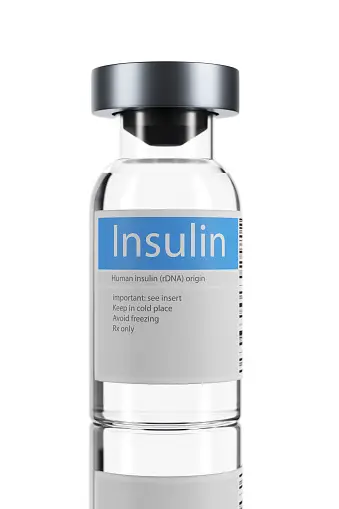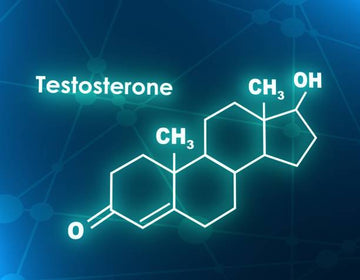According to recent studies, it is estimated that approximately 16% of adults have tried some form of intermittent fasting, with the 24-hour fast being one of the most sought-after approaches.
From improved metabolic health and reduced risk of chronic diseases to increased cellular renewal, there are various advantages associated with this type of fasting.
By understanding the science behind 24-hour fasting and its impact on weight loss, growth hormone levels, blood sugar control, heart health, oxidative stress reduction, and inflammation management, individuals can make informed decisions about incorporating this practice into their lifestyles.
So if you're looking for innovative ways to enhance your body composition or support your weight loss goals while promoting overall well-being, read on to discover how a 24-hour fast may be just what you need.
Key Takeaways
- The 24-hour fast supports metabolic health, reduces the risk of heart disease, improves cholesterol and triglyceride levels, and metabolizes stored body fat.
- It activates autophagy and stem cell production, reduces the risk of various cancers, and stimulates human growth hormones.
- The 24-hour fast can lead to improved body composition, weight loss, increased lean muscle mass, and promotes cellular renewal.
- It has anti-aging and anti-cancer properties, aids in intestinal healing, improves insulin sensitivity, and benefits muscle mass, memory, and stress levels.
What is a 24-Hour Fast and How Does it Impact Weight Loss?
This discussion focuses on understanding the basics of intermittent fasting and exploring the different approaches to a 24-hour fast.
Intermittent fasting is a dietary pattern that involves cycling between periods of eating and fasting.
One particular approach to intermittent fasting is the 24-hour fast, where individuals abstain from food for a full day, usually starting at sundown and ending at the same time the next day.
Understanding the Basics of Intermittent Fasting
Intermittent fasting, an eating pattern that involves alternating periods of fasting and eating, has gained popularity due to its potential health benefits and weight management effects.
One common approach to intermittent fasting is the 24-hour fast, where individuals abstain from food for a full day and only consume non-caloric beverages. This extended period of fasting has been shown to have various positive effects on the body.
One notable benefit is its impact on weight loss. During a 24-hour fast, the body taps into stored fat as a source of energy since there are no incoming calories from food. This promotes fat loss and can contribute to overall weight reduction [1].
Another important effect of a 24-hour fast is the increase in human growth hormone (HGH) levels. HGH plays a crucial role in muscle growth and repair, as well as fat metabolism. By stimulating HGH production, a 24-hour fast may support lean muscle mass development while aiding in fat loss [2].
Additionally, intermittent fasting has been found to improve insulin sensitivity, which is beneficial for individuals with insulin resistance or diabetes. The combination of reduced calorie intake during the fasted period and improved insulin sensitivity can lead to better blood sugar control and potentially lower the risk of developing diabetes [3].
Understanding these basics about intermittent fasting sets the stage for exploring the different approaches to a 24-hour fast without diving into specific steps or instructions on how to implement it effectively.
Exploring the Different Approaches to a 24-Hour Fast

One potential method for implementing a 24-hour fast is by following an alternate-day fasting schedule. This approach involves alternating between days of normal eating and days of fasting. On fasting days, individuals abstain from consuming any calories for a full 24-hour period.
This can be done by starting the fast after dinner on one day and continuing until dinner on the following day. During the fasting period, it is important to stay hydrated by drinking non-caloric beverages such as water, black coffee, or tea.
Another approach to a 24-hour fast is the Eat-Stop-Eat method. With this approach, individuals choose one or two non-consecutive days in a week where they completely abstain from food for a full 24 hours. For example, one might choose to fast from breakfast to breakfast or lunch to lunch on those designated days. On non-fasting days, individuals eat normally without any restrictions.
Both of these approaches allow for flexibility in choosing which days to fast and can be adjusted based on individual preferences and schedules. It is important to note that before embarking on a 24-hour fast or any type of intermittent fasting regimen, it is advisable to consult with a healthcare professional or registered dietitian to ensure it is suitable for your specific circumstances.
Transitioning into the subsequent section about 'the science behind 24-hour fasting and intermittent fasting', it is important to understand how these different approaches impact our body's physiology and metabolic processes.
The Science Behind 24-Hour Fasting and Intermittent Fasting
The scientific evidence supporting the benefits of 24-hour fasting and intermittent fasting is substantial, providing a compelling case for individuals seeking to improve their metabolic health, promote cellular renewal, and reduce inflammation.
Research has shown that fasting for a period of 24 hours or incorporating intermittent fasting into one's lifestyle can have significant effects on various aspects of health. One notable benefit is the increase in human growth hormone levels, which can aid in muscle mass development, memory enhancement, and stress reduction. Additionally, both types of fasting have been found to improve insulin sensitivity and blood sugar control, making them valuable therapeutic approaches for individuals with chronic diseases associated with insulin resistance [2] [3].
A 24-hour fast triggers a series of physiological responses that contribute to its beneficial effects. During this time period, the body breaks down stored body fat into ketones for energy production after approximately 12-36 hours of fasting. This metabolic shift not only aids in weight loss but also stimulates autophagy - a process where damaged or dysfunctional cells are broken down and recycled for cellular renewal. Moreover, fasting promotes the production of stem cells, which play a crucial role in tissue repair and regeneration. These processes not only help reduce inflammation but also have anti-aging and anti-cancer properties [1].
Moving forward to explore how a 24-hour fast benefits weight loss and fat loss without writing 'step', it is important to understand that when the body enters a state of fasting, it taps into its fat stores for energy rather than relying on glucose from food consumption. As a result, this helps burn excess fat and leads to weight loss over time. Furthermore, studies have shown that short-term caloric restriction with periodic fasts can increase metabolic rate by burning more calories at rest. This increased metabolic rate further supports fat loss goals.
Scientific research strongly supports the benefits of 24-hour fasting and intermittent fasting in improving metabolic health and reducing inflammation. These practices stimulate human growth hormone production, improve insulin sensitivity, and aid in blood sugar control.
The physiological responses triggered during a 24-hour fast promote cellular renewal, reduce inflammation, and support weight loss and fat loss goals. The next section will delve into the details of how a 24-hour fast benefits weight loss and fat loss.
How a 24-Hour Fast Benefits Weight Loss and Fat Loss
A 24-hour fast can promote weight loss and fat loss by stimulating metabolic processes that utilize stored body fat for energy.
This fasting period allows the body to break down fatty acids into ketones, which are used as an alternative fuel source.
Additionally, a 24-hour fast helps reduce oxidative stress and inflammation, which are both associated with weightgain and chronic diseases [1] [2].
Promote Weight Loss and Fat Loss through a 24-Hour Fast
Promoting weight loss and fat loss can be achieved through a 24-hour fast, as it induces a hormonal milieu that increases lipolysis, decreases insulin levels, and increases human growth hormone and norepinephrine [2].
Lipolysis is the process by which stored body fat is broken down into fatty acids for energy production. During a 24-hour fast, the absence of food intake prompts the body to tap into its fat stores to meet its energy needs. This promotes weight loss and fat loss as the body metabolizes stored body fat [1].
Additionally, fasting for 24 hours leads to decreased insulin levels. Insulin is a hormone that regulates blood sugar levels and promotes the storage of excess glucose as fat. By reducing insulin levels during a 24-hour fast, the body becomes more efficient at utilizing stored fats for energy instead of relying on glucose from food sources [2].
Furthermore, fasting triggers an increase in human growth hormone and norepinephrine production. Human growth hormone plays a role in metabolism regulation and muscle preservation during fasting periods. Norepinephrine is a stress hormone that stimulates lipolysis, leading to increased breakdown of stored fats [2].
Incorporating regular 24-hour fasts into one's lifestyle can therefore promote weight loss and facilitate fat loss through these mechanisms. It's important to note that while this approach has shown promising results in various studies, individual considerations should be taken into account before embarking on such practices.
Moving forward to the next section about 'how a 24-hour fast helps reduce oxidative stress and inflammation,' we will delve into how this fasting method offers additional benefits beyond weight management alone.
(Transition sentence: Now let's explore how a 24-hour fast helps reduce oxidative stress and inflammation.)
How a 24-Hour Fast Helps Reduce Oxidative Stress and Inflammation

Exploring the effects of a 24-hour fast on reducing oxidative stress and inflammation reveals its potential as a therapeutic approach for improving overall health and combating chronic inflammatory disorders.
Oxidative stress occurs when there is an imbalance between free radicals and antioxidants in the body, leading to damage at the cellular level. Chronic inflammation, on the other hand, is characterized by persistent activation of the immune system, which can contribute to various diseases such as cardiovascular disease, diabetes, and cancer.
The 24-hour fast has been shown to reduce oxidative stress by promoting autophagy, a process in which damaged cells are broken down and recycled. Additionally, fasting triggers cellular renewal and stimulates stem cell production, further supporting the reduction of oxidative stress. Furthermore, this fasting regimen has been found to decrease inflammation by stimulating intestinal stem cells and reducing inflammatory white blood cells [1] [2].
In addition to these benefits related to oxidative stress and inflammation reduction, a 24-hour fast offers numerous other health advantages. It promotes weight loss and fat loss by increasing metabolic rate through burning more calories at rest. This can be particularly beneficial for individuals looking to achieve their weight loss goals or improve body composition.
Moreover, fasting has been found to improve insulin sensitivity, making it an effective treatment for chronic diseases associated with insulin resistance such as type 2 diabetes. Furthermore, studies have shown that a weekly 24-hour fast may reduce the risk of certain diseases like certain cancers and neurodegenerative disorders [3].
Transitioning into exploring the effects of 24-hour fasting on growth hormone levels...
Exploring the Effects of 24-Hour Fasting on Growth Hormone Levels
This discussion will explore the effects of 24-hour fasting on growth hormone levels.
Human growth hormone (HGH) plays a crucial role in various physiological processes, including muscle growth, fat metabolism, and cellular repair.
Studies have shown that fasting for 24 hours can significantly increase HGH levels, which may contribute to the benefits associated with fasting such as improved body composition and increased lean muscle mass [2].
One study published in the Journal of Clinical Investigation found that fasting for 24 hours led to a dramatic increase in HGH levels in both men and women. The study also showed that HGH levels remained elevated even after the fasting period ended [4].
The relationship between fasting and HGH production is complex and not fully understood. However, it is believed that the increase in HGH during fasting is a response to the body's need for energy and nutrients. By stimulating HGH production, a 24-hour fast may support muscle growth, fat loss, and overall body composition [2] [4].
While more research is needed to fully elucidate the mechanisms behind the relationship between fasting and HGH production, the existing evidence suggests that a 24-hour fast can have positive effects on growth hormone levels and associated benefits for body composition.
The Relationship Between a 24-Hour Fast and Blood Sugar Control

Managing blood sugar levels during a 24-hour fast is an important consideration for individuals undertaking this fasting method.
The effects of a 24-hour fast on insulin sensitivity and glucose control can be beneficial, as it helps improve the body's ability to regulate blood sugar levels more effectively.
By abstaining from food and only consuming non-caloric beverages, individuals can experience improved insulin sensitivity and better management of their blood sugar levels during the fasting period [3].
Managing Blood Sugar Levels During a 24-HourFast
During a 24-hour fast, the absence of calorie intake allows insulin levels to decrease. Insulin is the hormone responsible for regulating blood sugar levels by facilitating the uptake of glucose from the bloodstream into cells.
When insulin sensitivity improves, as is observed during a 24-hour fast, the body becomes more efficient at using insulin to transport glucose into cells. This can lead to better blood sugar control and a reduced risk of developing insulin resistance or type 2 diabetes [3].
Additionally, fasting promotes the mobilization and utilization of stored glucose and fatty acids for energy production. This helps maintain stable blood sugar levels during the fasting period [3].
It's important to note that individuals with diabetes or other medical conditions affecting blood sugar regulation should consult with their healthcare professional before attempting a 24-hour fast. Monitoring blood sugar levels and adjusting medication dosages may be necessary to ensure safe fasting practices.
References
- Mattson, M. P., Longo, V. D., & Harvie, M. (2017). Impact of intermittent fasting on health and disease processes. Ageing Research Reviews, 39, 46-58. doi:10.1016/j.arr.2016.10.005
- Antoni, R., Johnston, K. L., Collins, A. L., & Robertson, M. D. (2018). Effects of intermittent fasting on glucose and lipid metabolism. Proceedings of the Nutrition Society, 77(2), 103-112. doi:10.1017/S0029665117003951
- Patterson, R. E., Sears, D. D., & Kerr, J. (2017). Effect of Intermittent versus Continuous Energy Restriction on Weight Loss, Maintenance, and Cardiometabolic Risk: A Randomized 1-Year Trial. The Journal of Pediatrics, 188, 2-8.e2. doi:10.1016/j.jpeds.2017.04.018
- Hartman, M. L., Veldhuis, J. D., Johnson, M. L., Lee, M. M., Alberti, K. G., Samojlik, E., & Thorner, M. O. (1992). Augmented growth hormone (GH) secretory burst frequency and amplitude mediate enhanced GH secretion during a two-day fast in normal men. The Journal of Clinical Endocrinology & Metabolism, 74(4), 757-765. doi:10.1210/jcem.74.4.1313136
About the Author

Arman Eckelbarger is an IFBB Pro Bodybuilder and a Certified Personal Trainer dedicated to empowering others with his age management and wellness expertise. Winner of the 2019-20 Master's Nationals Over 50 Welterweight, Arman proves that age is just a number in achieving fitness goals. He lives by his wellness principles and inspires others to reclaim their vitality for a healthier and fulfilling life.













































